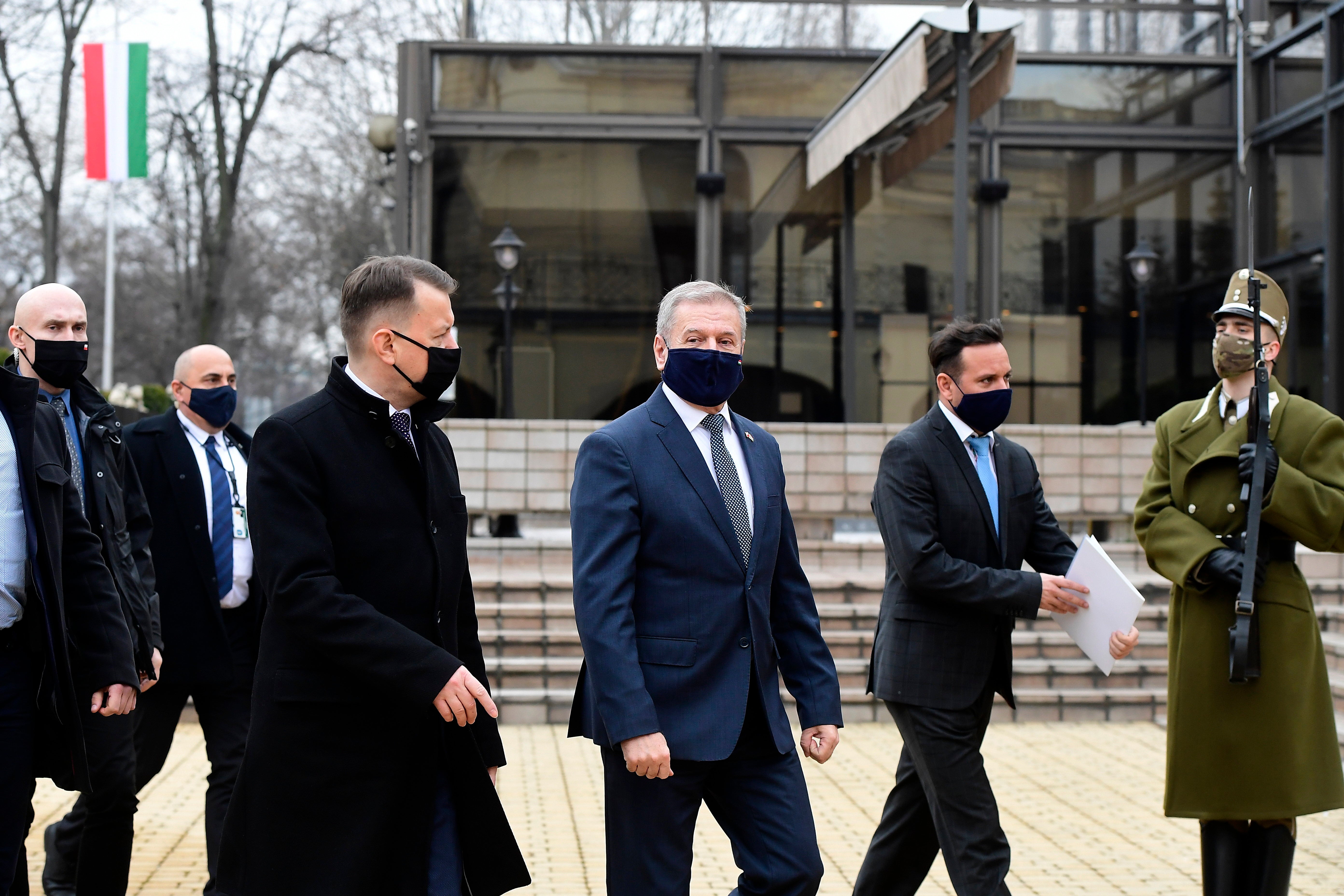Central European leaders mark Visegrad Group's 30 years
Hungary's prime minister says the role of Central European nations is to help protect the European Union against "outside attacks" but also against “internal tendencies to build an empire” while guarding their own independence

Your support helps us to tell the story
From reproductive rights to climate change to Big Tech, The Independent is on the ground when the story is developing. Whether it's investigating the financials of Elon Musk's pro-Trump PAC or producing our latest documentary, 'The A Word', which shines a light on the American women fighting for reproductive rights, we know how important it is to parse out the facts from the messaging.
At such a critical moment in US history, we need reporters on the ground. Your donation allows us to keep sending journalists to speak to both sides of the story.
The Independent is trusted by Americans across the entire political spectrum. And unlike many other quality news outlets, we choose not to lock Americans out of our reporting and analysis with paywalls. We believe quality journalism should be available to everyone, paid for by those who can afford it.
Your support makes all the difference.Hungarian Prime Minister Viktor Orban says the role of Central European nations is to help protect the European Union against “outside attacks” but also against “internal tendencies to build an empire” while guarding their own independence.
Orban made the comments Wednesday in Polish and Hungarian media as four nations — Poland, Hungary, Slovakia and The Czech Republic — celebrated 30 years of their Visegrad Group, an informal body of political and economic cooperation in the fast-developing region.
The ceremonious gathering at Wawel Castle in Krakow, hosted by Poland's Prime Minister Mateusz Morawiecki and attended by Orban, Czech Prime Minister Andrej Babis and Slovakia's Prime Minister Igor Matovic, was joined by European Council President Charles Michel.
The V4 nations “understand their share of responsibility for the future of Europe" based on Christian values, Orban wrote in a letter for Poland's Interia.pl news platform and for the Hungarian daily Magyar Nemzet.
He said the group's role was to “defend (Europe) against outside attacks and defend it against internal tendencies to build an empire, to maintain the independence of our homelands and nations."
Hungary and Poland are the EU's recalcitrant members, often criticized for what is seen as political interference in areas like the judiciary and the media freedom.
During their gathering, the leaders will discuss and sign a declaration of cooperation in the cyber sector.
The V4 was founded in February 1991 from a declaration of cooperation that then-Presidents Lech Walesa of Poland, Vaclav Havel of then-Czechoslovakia and Jozsef Antall of Hungary signed in Visegrad, Hungary. Its members joined the EU in 2004.
Poland currently holds the group’s 12-month rotating presidency, which it will hand over to Hungary on July 1.